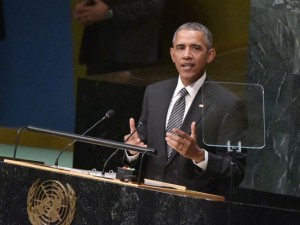 I used to say President Obama is a great orator.
I used to say President Obama is a great orator.
In retrospect, particularly in view of his speeches over the past two years, I would have to modify my appraisal: Mr. Obama is a mind-numbingly effective orator — with major emphasis on ‘mind-numbing’ — whose powers of persuasion are both awe-inspiring and reality-altering.
But great? I think not.
You see, great orators don’t insult their audiences by lying and using their enormous gifts to wreak havoc on the world, demean other world leaders, and generally inflict listeners with self-serving propaganda.
Great orators ennoble, enlighten, inspire!
There is so much deception, obfuscation, manipulative innuendo, faulty logic, sheer raw hypocrisy in his recent U.N. speech, I could write volumes. But it’s not worth your time or mine, since so many of the lies upon which he built this petty and self-aggrandizing show have been repeated with such relentless regularity, they are part of the accepted collective wisdom of both the American public and the government propaganda apparatus, aka the main stream media.
I’ll just throw out a few comments.
“But we cannot stand by when the sovereignty and territorial integrity of a nation is flagrantly violated. If that happens without consequence in Ukraine, it could happen to any nation gathered here today.”
Like Yemen being bombed by the U.S.-supported tyrannical government of Saudi Arabia? Like Iraq? Or Libya? Or Afghanistan? Or any of the 30+ countries the U.S. has attacked or effected regime change by proxy?
Here’s a real gem.
“It is not a conspiracy of U.S.-backed NGOs that expose corruption and raise the expectations of people around the globe; it’s technology, social media, and the irreducible desire of people everywhere to make their own choices about how they are governed.”
Oh really? One of America’s favorite ‘NGOs’ is the National Endowment for Democracy. First of all even calling it an NGO is a laugh. Everyone knows — at least in the crowd I run with — that the NED was created by the CIA and is funded by Congress. For some reason, whenever it shows up on the scene, countries become immersed in chaos and insurrection, with regime change soon to follow. The most recent victim of its handiwork is Ukraine, where it fomented the overthrow of the legitimate democratically–elected government, then installed a chocolate puppet doll to do the bidding of the U.S.
Here the President deftly conflated bragging and threats, as in, “See how we’ve messed up things for you, Russia? If you don’t tow the line, you ain’t seen nothing yet, baby!”
“Sanctions have led to capital flight, a contracting economy, a fallen ruble, and the emigration of more educated Russians.”
Then just when I thought it was safe to stop gagging and listen further, I picked up on this.
“When a dictator slaughters tens of thousands of his own people, that is not just a matter of one nation’s internal affairs — it breeds human suffering on an order of magnitude that affects us all.”
Which is why we supplied chemical weapons to Iraq dictator Saddam Hussein in order to get the job done right back when he was one of our buddies? Which is why we overthrew the democratically-elected leader of Chile and replaced him with a brutal autocrat who then proceeded to kill tens of thousands of his people? Of course, I could go on with many more examples. But it’s tedious and pointless, as hypocrisy is apparently now considered one of the great virtues in the Empire of Chaos.
“Assad reacted to peaceful protests by escalating repression and killing that, in turn, created the environment for the current strife.”
Really? Is that the whole story? Or just the one the U.S. creates for its fairy tale version of every uprising it seeds and supports to overthrow governments it doesn’t like?
Oh yes . . . about those crazy Muslims running around beheading people, driving tens of thousands to flee their native lands and seek refuge in Europe:
“We know that ISIL — which emerged out of the chaos of Iraq and Syria — depends on perpetual war to survive.”
Like the U.S. military-industrial complex? Or the U.S. itself which can’t stop bombing countries into complying with its dictates?
Credit where credit is due, however: Our president did stumble into the truth a few times. Thus, here is absolutely my favorite quote from his speech . . .
“On this basis, we see some major powers assert themselves in ways that contravene international law. We see an erosion of the democratic principles and human rights that are fundamental to this institution’s mission; information is strictly controlled, the space for civil society restricted. We’re told that such retrenchment is required to beat back disorder; that it’s the only way to stamp out terrorism, or prevent foreign meddling.”
. . . because it perfectly describes the United States of America, in particular the policies aggressively promoted by Mr. Obama himself.
Watch President Obama’s entire speech and judge for yourself whether this man is ever capable of doing anything but creating a smokescreen for America’s malfeasance in the world, its monomaniacal fixation with its power, its self-proclaimed right to lecture and dictate to others how the world should be run.



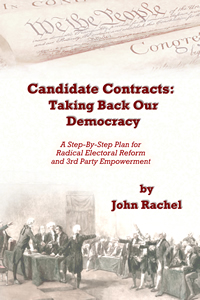



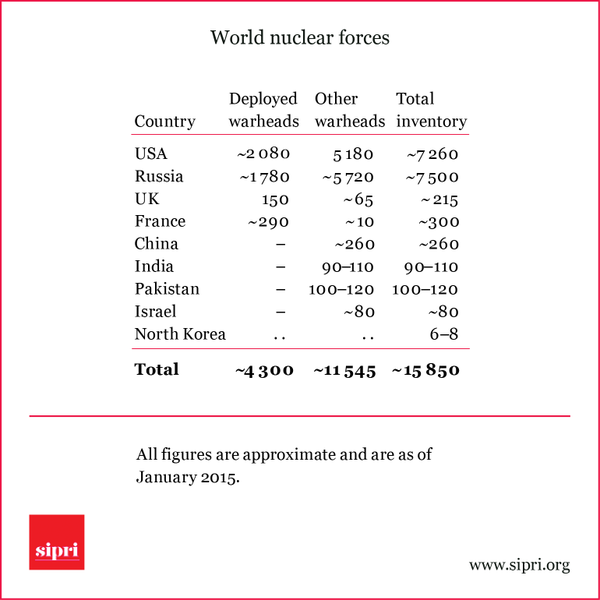










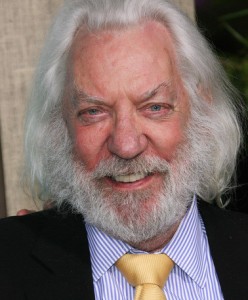




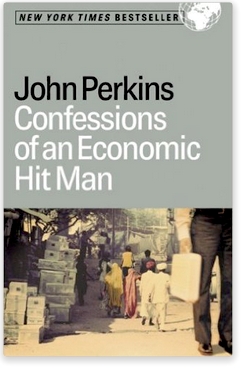







Just a theory . . .
Then someone suggested putting logs under the sleds, permitting a reduced number of slaves to push the incredibly heavy pieces along, or the same number of slaves to move the load much more quickly. This also allowed transporting even more monstrous blocks of cut stone and other bulky components. Some of the great wonders of the world came out of this simple suggestion, which seems obvious to us now.
Who thought of that? Some inventive member of the royal court? Maybe one of the slave foremen who was trying to score some points with the king?
Who subsequently made the astonishing mental leap to create the wheel? To make a large disk, drill a hole in the center, mount it on a long shaft attached to the “sled”?
Was it some cosmic thinker?
Maybe it was a slave who thought it might be his ticket to freedom. You can imagine him getting 50 lashes for dilly-dallying, drawing his theory for revolutionizing transportation for the entire future of mankind, in the sand with a stick . . .
“Listen, I have this idea for making . . . Ow! . . . Damn! That really hurts! . . . It’s just a theory but . . . AAAAAH! . . .”
I’ve sent out over 900 copies. The book is a step-by-step plan for radical electoral reform, designed specifically to address the pandemic corruption among our elected politicos. It outlines in detail a real alternative to the two-party monopoly which has crippled our system. These copies went to independent political candidates and campaign managers, party campaign strategists, political analysts, academicians, pundits, journalists, opinion makers, bloggers, across a wide diversity of institutions __ colleges and universities, think tanks, media outlets, local and national political organizations.
I can’t say the response is very encouraging.
Most people don’t have time or are simply not interested in something outside-the-box and paradigm-shifting. Big ideas are the stuff of lunatics or delusionals. Everyone knows that change crawls along like a turtle and the hares should be put on Ritalin.
One moderately famous activist __ most progressives would know him, as he is involved in a lot of grass roots work and is regularly published in the media outlets of the left __ while tearing me a new anal sphincter, pointed out all of the ridiculous flaws and dead ends he could see in my worthless ideas. In a series of several long emails, he demolished my plan point-by-point, taking down one idea after another, condemning it all as just more of the same stuff that he typically finds in “these kinds of books”.
Of course, none of the ideas he so devastatingly ripped to shreds actually appeared in my book. He had clearly not read it, or any portion of it. The ideas he found easy to dismiss were the ones he assumed were there, I guess by looking at the title and the book cover.
When I pointed this out to him, I was accused of being obnoxious and too sensitive to criticism. The capper was accusing me in no uncertain terms of being out-of-control, hysterical, and going ballistic.
Granted, I’m not by any stretch a master of diplomacy. But I didn’t think that telling him that he might want to actually read the book before wasting any more of his or my time carrying on about how worthless it was, would be considered unreasonable or impolitic.
He concluded six very long, detailed emails by saying whatever the particulars of my strategy might be, it was “just a theory”.
Just a theory?
What is that supposed to mean?
A theory.
You mean like drilling a hole in a large disk, mounting it on an axle?
Am I comparing my approach to electoral reform to something as profound and truly history-shaping as the invention of the wheel?
Of course not. Maybe I’m more like the guy at the bottom of a lake who suggested making boats out of concrete instead of wood.
But . . .
How will we ever know if we don’t try?
How will we see any progress if we don’t look at new ideas, fresh approaches?
How does anyone new get heard when “established” experts go off like a cluster bomb when anyone encroaches on the staked-out territory of their self-proclaimed expertise?
Having said that . . . let me finish on a more positive note.
Other than a few very negative responses like the one I just described, and the 99% of those 900+ who didn’t respond at all, I did get some encouragement.
I’m not a name-dropper, so I’m not going to give you names.
But a very well-known government whistle-blower, certainly famous in circles of people concerned about the errant ways of the CIA and NSA on torture and spying, read my book cover-to-cover and said this:
“It is absolutely outstanding — a public service, really. You made it analytic, yet easy to understand, logical, and convincing. Well done.”
Another individual whose name the vast majority of Americans would know, who is widely respected as a progressive fighter and a fierce advocate for peace, a gentleman who served his country for most of his life, and has even run for president, called me from Washington DC and we talked for twenty minutes. He said my ideas were promising, that the kind of creative and unique thinking I brought to the difficult challenges of electoral reform and restoring representative democracy, were quite welcome and certainly valuable. He said that typically now, many established thinkers were locked into methodologies that didn’t work. Dramatic change would only come from dramatic and bold new ideas.
I’m not going to pretend it didn’t feel good to get some positive feedback, especially from two individuals who I respect and admire on a lot of different levels.
At the same time __ and I sincerely mean this __ a nice pat on the back is not what I’m looking for. Approval is great but it’s not what drives me to do the enormous amount of work that goes into a book like this, or even writing my political blogs and magazine articles. There’s much more:
I’d like to see some serious changes in both the way we see things and the way government does things.
I’d like to see people become inspired again to get involved, particularly young people who mostly don’t vote or believe that politics is worth their time and attention.
I’d like to see the cynicism about the potential for change to be replaced with genuine hope and a positive vision for the future.
I’d like to make a constructive and enduring contribution to discussions and debates, be one of the voices which injects energy and fresh ideas into the national conversation.
But then I am sometimes prompted to ask . . . what national conversation?
It seems like everyone is talking. No one is listening.
Is citizen engagement possible when so many of those we look to for leadership themselves are not engaged?
Is it possible for groups of people working together __ and there are many phenomenal, highly motivated activist organizations these days doing their best, trying to get America back on track, attempting to shape a better future for themselves and generations to come __ to force our leaders to change their ways?
Is it possible for one citizen to make a difference anymore?
Or is that just a theory?